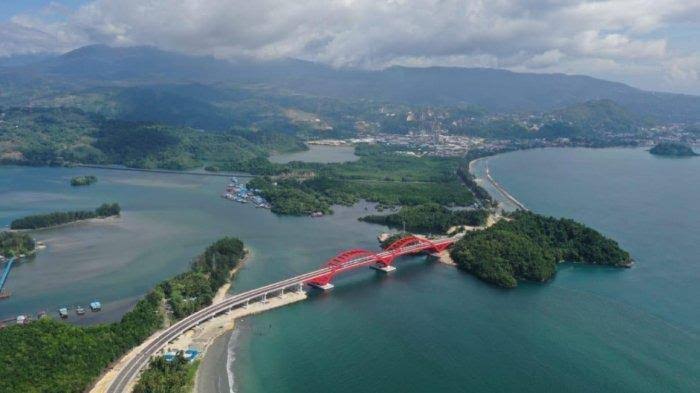Papua has continued to develop rapidly since becoming an integral part of the Republic of Indonesia
Papua, since being declared an integral part of the Unitary State of the Republic of Indonesia (NKRI), has shown significant development in various sectors. This is proof of the government’s commitment to advancing the region and strengthening Papua’s integration into the Republic of Indonesia. Since joining Indonesia in 1969 through a process of transfer of sovereignty recognized by international law, Papua has continued to experience substantial transformation.
Since the era of President Joko Widodo’s leadership, Papua has experienced a surge in infrastructure development. President Jokowi has emphasized the importance of development in remote areas, including Papua, which has been difficult to reach.
The government’s focus on infrastructure development in Papua includes roads and bridges, ports and airports, education and health, and telecommunications. This development not only aims to improve connectivity and accessibility but also to improve the welfare of the Papuan people.
A number of large infrastructure projects have been launched and planned for Papua. For example, the Rendani Airport development project in Manokwari, West Papua, which has successfully completed the development of the runway and various other supporting facilities. This project is a gateway to the progress of Manokwari Regency and is expected to improve connectivity and open up more economic opportunities.
In addition, concrete steps have been taken by the government to strengthen Papua’s integration, including granting Special Autonomy (Otsus) status through Law Number 21 of 2001. This policy reflects recognition of Papua’s cultural and historical diversity, as well as a commitment to advancing the region. inclusively.
The granting of Special Autonomy also allows Papua to have more authority in regulating and managing its region, so that it can be more effective in meeting the needs of the local community.
Young Papuan figures, such as Steve Mara, highlighted the positive impact of President Jokowi’s era of infrastructure development which was felt by the community, especially in remote areas. The development carried out includes not only physical infrastructure but also human resource (HR) development.
The government is committed to building schools and health centers in various remote areas of Papua to improve the quality of education and public health.
In the economic sector, the government is trying to reduce disparities between regions by developing various projects that can open up greater economic opportunities in Papua. These projects involve the participation and empowerment of local communities in decision making regarding development and social programs.
Collaboration between the government, private sector and local communities is the key to realizing inclusive and sustainable development in Papua.
Other concrete steps include the introduction of simple technology and equipment for small-scale farmers and fishing businesses in Papua, with grant assistance from Japan. This project aims to increase production and product quality, as well as expand sales channels, in order to improve the welfare of farmers and fishermen in Papua.
This international support shows global attention to development in Papua and commitment to help overcome the challenges faced by local communities.
The government also encourages foreign investment to accelerate economic growth in Papua. For example, plans to build a nickel smelter and steel manufacturing factory in the Sorong Special Economic Zone (KEK) by investors from China.
This project is expected to improve the regional economy and open up job opportunities for thousands of people, especially indigenous Papuans. Collaboration between regional governments and foreign investors shows good synergy in advancing Papua and optimizing the potential that exists in the region.
In the security sector, the TNI plays a role in supporting the development and welfare of the Papuan people. HABEMA’s TNI Operations Command (KOOPS TNI), for example, has carried out various territorial activity programs, including installing lighting for streets and residents’ homes in several districts that experience lighting difficulties.
This effort is a form of TNI’s concern for the local community and is in line with the Presidential Instruction regarding accelerating welfare development in Papua.
In recent years, Papua has experienced significant transformation in various aspects. The government, with the support of local communities and international cooperation, continues to strive to ensure that Papua grows and develops within the framework of the Republic of Indonesia. Infrastructure development, improving public services and community empowerment efforts are top priorities.
The government’s firm commitment and support from the Papuan people themselves are a strong foundation in ensuring that Papua continues to develop and contribute to the progress of Indonesia as a whole.
Papua has shown rapid development since becoming an integral part of the Republic of Indonesia. Massive infrastructure development, improving the quality of human resources, and various community empowerment initiatives show the government’s commitment to ensuring prosperity for all Papuan people. Synergy between government, the private sector and local communities is the key to realizing inclusive and sustainable development. With continued support, Papua will not only become a geographical part of Indonesia but also an integral part of the identity and sovereignty of a country that continues to develop and progress.
